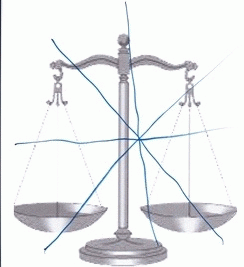Last Friday the Austin American-Statesman, the very liberal university city's principal newspaper, reported that if Texas's stringent voter ID requirement hadn't been mitigated by a court trial, 16,400 citizens would have lost their right to vote, statewide.
Important information for those in favor of fair voting and kudos to the newspaper for publishing this alarming statistic.
But in the context of the total votes cast in the usually red Lone Star State in 2016, this number is a drop in the bucket, according to many. Nine million Texans voted in the presidential election last November.
One would expect that the principal news vehicle in this 14th-most-liberal [large] city in the country would be liberal. Austin is the most liberal city in Texas. Here's one record: the American-Statesman endorsed G. W. Bush in 2000 and 2004 and Obama in 2008 and 2012 and no candidate in 2016.
But one wouldn't expect the HUGE inaccuracy of the statewide figure. As of last summer, according to many sources, fully 600,000 Texans stood to lose their vote were the country's most stringent voter ID requirement allowed to stand--appeals were not accepted by SCOTUS for certiorari. And because of misinformation as well as honest confusion, many would-be voters were turned away. (See click here, citing an AP report at endnote 22.)
And the affidavit required for the class of voters once again allowed to vote though lacking one of the seven forms of ID required (which include gun owners' licenses to carry concealed weapons but not IDs from the state's flagship systems of universities), would certainly hold up lines when conscientious voters wanted to read through the form (I don't have a copy of it, but even a short one would require a read and then a signature, and you know how long lines get in less-affluent voting districts/precincts). How many got to read through this affidavit in advance? Was it reproduced by newspapers statewide to prevent long lines?
The requirement was imposed even though this class of voters brought more reasonable, now conditionally accepted forms of ID with them, including utility bills proving that they lived where they lived and were who they claimed to be.
Something even more of us know: when asked to provide convincing stats about how many people committed voter fraud, experts beg the question. And voter fraud, the particular form of voter impersonation only, is the only justification for the voter ID requirement that went viral after 2010 and is still spreading, along with many other devices, including the recently revealed Cross-Checking program that eliminated 7 million or so voters--you guessed it: mostly old people, college/university students, handicapped people, and poor people.
My point is that the number 600,000 sliding down to 16,400 between August 2016 and November of that same year would require what we're all grasping for today--miracles. (Read OEN's multiple stories on the Sister Giant Conference in DC last week that affirmed that WE THE PEOPLE ARE THE MIRACLE.)
Note that this stat, the 16,400 kept from voting, was affirmed by the office of the Lone Star State's secretary of state, Carlos Cascos, appointed by former Gov. Rick Perry.
My figure of 600,000 is culled from a report by the nonpartisan NYU think tank the Brennan Center for Justice.
16,400 voters is a substantial number, granted. But 600,000 up against the total cast in Texas of 9 million means that 7 percent (or maybe a few less but certainly more than 16,400) were deprived of the vote. And Texas's 38 electoral votes comprise 7 percent of the total 538 required to win a presidential election--just a coincidence. And the total difference between the winning and losing presidential candidates in Texas was 808,000 (according to Ballotpedia).
So thanks to Austin, Texas's largest newspaper for reporting that 16,400 inner-city voters were kept from voting. Were this true, as at Hanukkah for Jews, a great miracle happened there.
Let's hope for better miracles in the future, more in the interests of that quixotic statistic WE THE PEOPLE. 200 million (according to Politico) were registered for that 2016 election. Out of those, 136 million voted (Ballotpedia). 7 million (Greg Palast) kept from voting by Crosscheck represents 5 percent of those voters. Add in the myriad other forms of skullduggery keeping us from the polls. The difference between the winning and losing candidates' popular vote total was inferrably 2 percent.
But we all know that Cinton won the popular vote.
(Note: You can view every article as one long page if you sign up as an Advocate Member, or higher).






